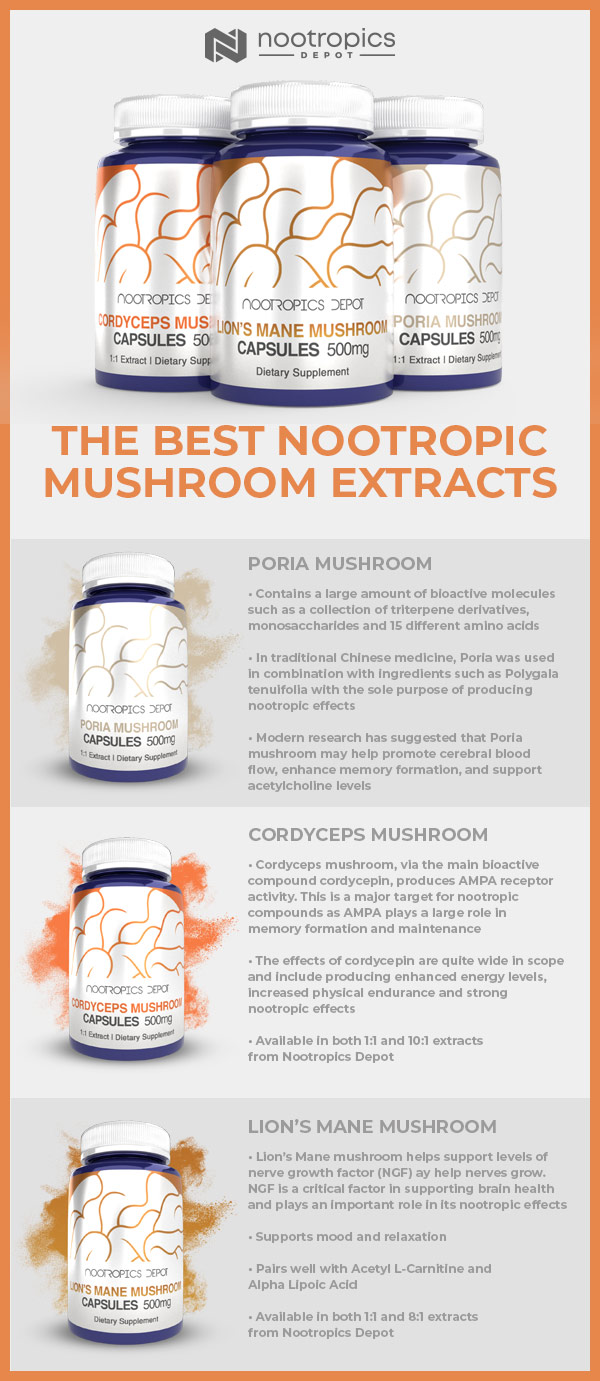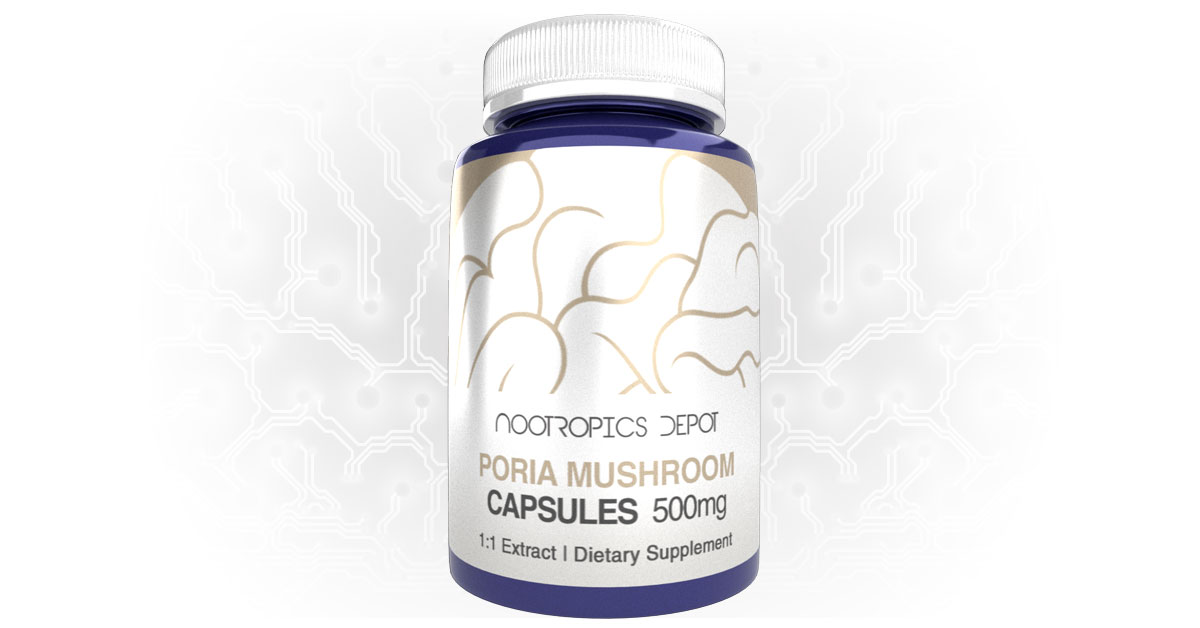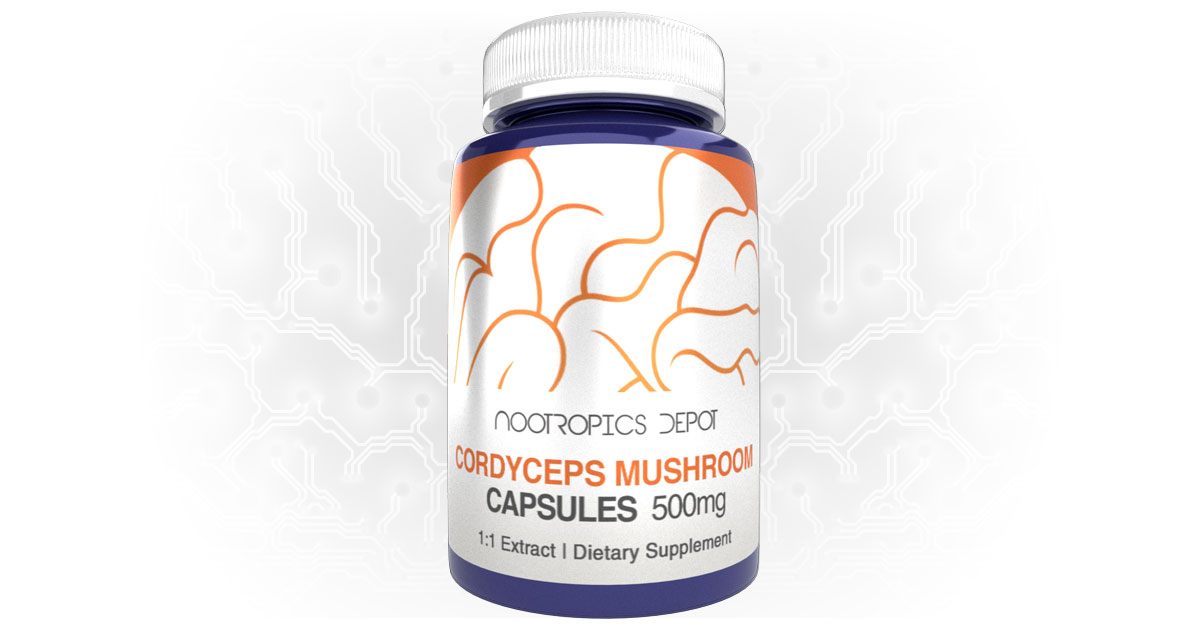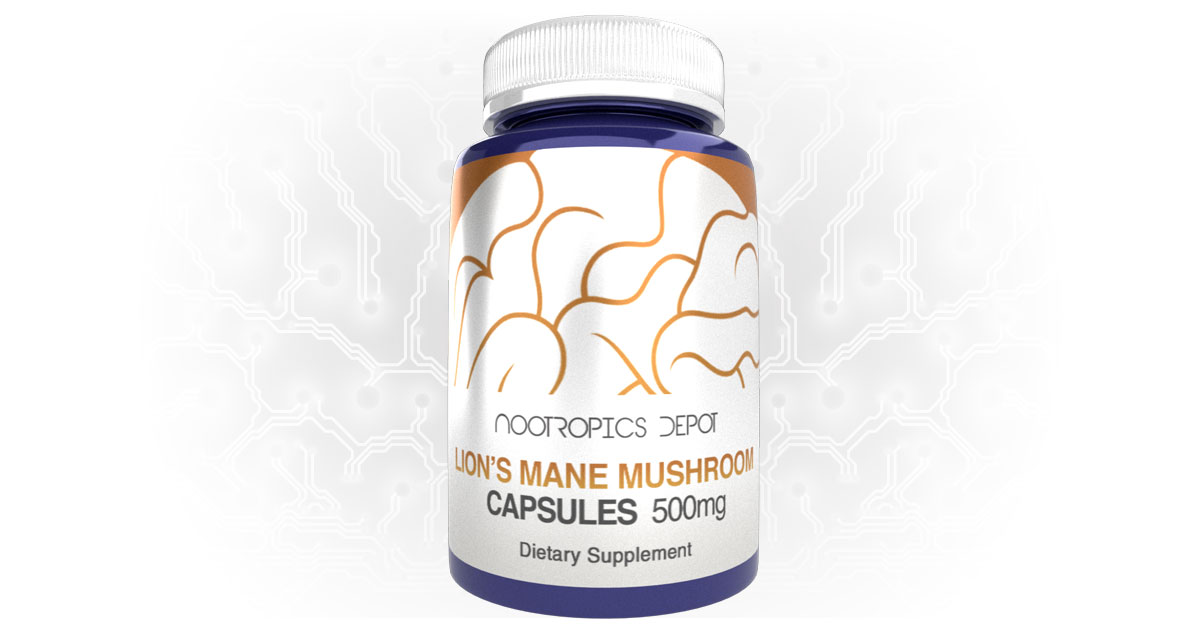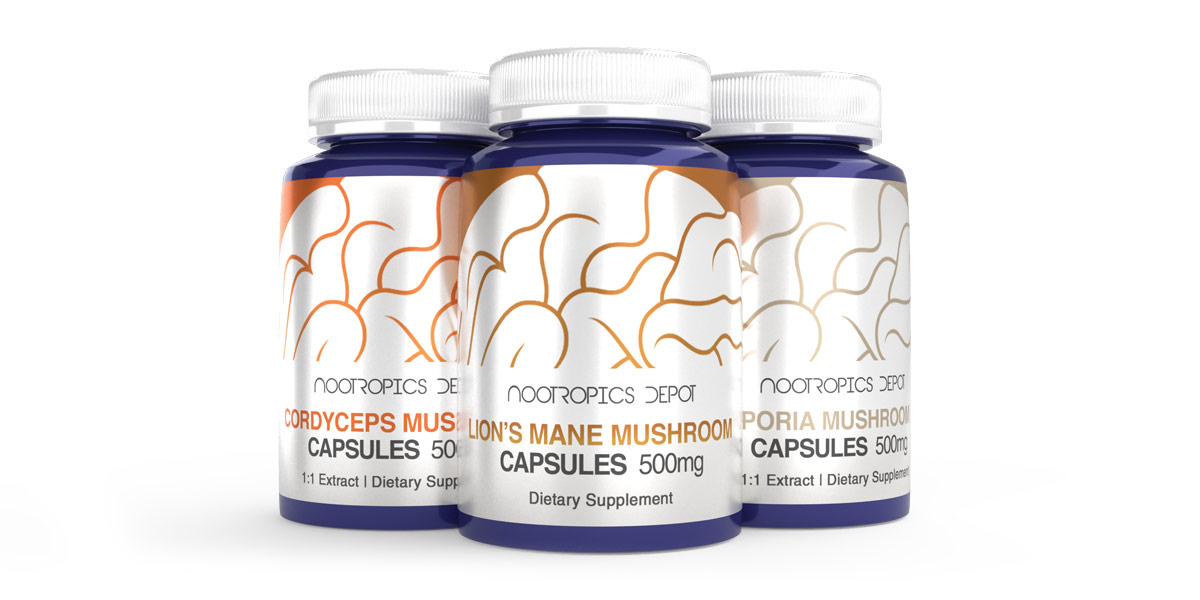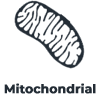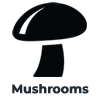Nootropic Benefits of Lion’s Mane Mushroom
Lion’s Mane mushroom is the most well known nootropic mushroom and has seen an enormous rise in popularity over the last few years. The reason why Lion's Mane mushroom is so sought after is quite simple: it just works! Both research studies and anecdotal reports have shown that Lion's Mane mushroom has quite prominent nootropic effects. This fast rise to mushroom stardom has also caused it’s fair share of issues with this mushroom -- the main one being the use of mycelium on grain.
It’s common practice for many mushroom extract vendors to produce their mushrooms domestically. However, growing whole fruiting body mushrooms can be quite labor intensive, consume large amounts of space, an is overall a fairly expensive process. The cheaper alternative is to grow mycelium. To produce mycelium, Lion's Mane mushroom spores are used to inoculate a substrate such as brown rice. A root system (mycelium) then starts to form in the substrate, and under the right conditions, fruiting bodies can sprout from the mycelium. What many domestic mushroom producers do, however, is take the myceliated substrate and grind everything up including the substrate. This ultimately means that you are getting small amounts of mycelium mixed with cheap grains such as brown rice. The current narrative touted by these vendors is that only the mycelium of lion’s mane has positive effects on cognition, and thus, a lot of consumers end up getting tricked into buying inferior mycelium on grain Lion's Mane mushroom.
Through countless hours of research, we have come to the conclusion that the mycelium does in fact contain beneficial compounds that are not found in meaningful concentrations in the fruiting body of the mushroom. However, all human studies on the cognition-enhancing effects of Lion's Mane mushroom have been done with the whole fruiting body mushroom. There is also clear evidence that the Lion's Mane mushroom fruiting body contains many other beneficial compounds including those that help bolster cognitive health. The Lion's Mane mushroom we carry is pure fruiting body of the highest quality and we do not accept inferior mycelium on grain products.
How Lion's Mane Mushroom Works
So, what does Lion's Mane mushroom actually do? Lion’s Mane mushroom helps support levels of nerve growth factor (NGF), which as the name may have given away already, may help nerves grow. NGF is a critical factor in supporting brain health and plays an important role in the nootropic effects of Lion's Mane Mushroom. Likely through its same NGF boosting properties, the Lion's Mane mushroom has also been shown to positively impact mood and relaxation.
The most interesting aspect of all of these nootropic mushrooms is that they not only have nootropic effects, but they also have significant health-boosting effects. Lion’s Mane mushroom is no exception to this and has a plethora of beneficial health effects such as increased immune function, regulation of oxidation and inflammation, and even helps promote healthy cardiovascular function!
Stacking Lion's Mane Mushroom with Other Supplements
If you want to maximize the cognition enhancing effects of a Lion's Mane mushroom supplement, we would suggest combining it with Acetyl L-Carnitine and OptimALA for a great nootropic stack utilizing natural nootropics. Acetyl L-carnitine and OptimALA, will help boost the NGF effects of a Lion's Mane Mushroom supplement even more which may lead to stronger nootropic effects! We have found that a Lion's Mane mushroom supplement with Acetyl L-Carnitine makes a simple, balanced and motivating nootropic stack that has a profound impact on memory recall!
Now the big question is, which Lion's Mane extract should you go for? The very short answer is that for nootropic effects, the Lion's Mane 8:1 extract will be the best choice. However, the 1:1 extract also has some unique effects, though the 8:1 will exert more nootropic benefits than the 1:1. The long answer can be found in our blog comparing our two different Lion's Mane extract offerings.

